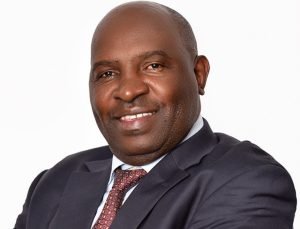
Dr Rose Mkalama
In yet another explosive revelation shaking Kenya’s public finance management, the Auditor-General has flagged a staggering Sh1.6 billion paid out by the Rural Electrification and Renewable Energy Corporation (REREC) to three mysterious firms—without any budget, tender, or trace of actual service delivery.
The bombshell report, buried in the footnotes of REREC’s FY-2024/25 audited financial statements, paints a grim picture of unchecked spending, weak oversight, and blatant violations of procurement law.
“There was no evidence that these services were competitively procured, planned, or budgeted for,” reads the audit entry. “No supporting documentation was availed to confirm execution.”
The Sh1.6 billion was reportedly channeled to three unidentified survey firms under the guise of land surveying services. But investigators found no records of procurement plans, no feasibility reports, and critically—no confirmation that any surveys were ever done.
Worse still, the names of the beneficiary firms remain shrouded in secrecy, raising red flags over potential insider collusion.
Procurement Law Breached
According to the Public Procurement and Asset Disposal Act (2015), all procurement must be anchored on approved budgets and annual procurement plans. But the Auditor-General says REREC bypassed these legal frameworks entirely.
This glaring violation, auditors argue, amounts to deliberate abuse of public funds, and points to a broken governance structure at REREC—where a dysfunctional board and an all-powerful CEO allegedly call the shots with minimal oversight.
Monica Juma Connection

Dr Monica Juma
The scandal is further muddied by revelations that REREC’s CEO, Dr. Rose Mkalama, is the sister of former Energy CS (and current security adviser to President Ruto) Dr Monica Juma.
This familial link may have emboldened impunity and discouraged internal accountability—though neither party has publicly commented on the matter. It equally weakens the hand-picked board governance.
What Next?
COFEK and other public-interest have already demanded a full forensic audit and prosecution of those involved.
COFEK lawyers and auditors are currently digging into procurement files and payment trails, promising to file formal complaints with the Ethics and Anti-Corruption Commission (EACC), and the Courts of Law, within weeks.
“If you can move Sh1.6 billion outside a legal budget without raising eyebrows, then the system is not broken—it is complicit,” COFEK Secretary General Stephen Mutoro posted on his social media account.
This scandal comes at a time when the government is asking Kenyans to tighten their belts, as it battles a ballooning national debt and underfunded public programs. Meanwhile, institutions like REREC appear to operate like financial black holes—draining billions with little regard for law or value.
At the same time, a cash-strapped government wants to cut all the funding to free primary, secondary and university education.
The Sh1.6 billion question isn’t just about stolen money. It’s about how weak institutions enable elite capture of public wealth—while rural communities still live in darkness.
Unless action is taken, COFEK argues, REREC will join the growing list of taxpayer-funded institutions turned into ATM machines for the well-connected.
Accountability must follow the money—no matter how well-connected the hands holding it. On this, EACC and the Director of Public Prosecutions (DPP) must act with speed. The funds from be recovered.
REREC is chaired by the little-known Godfrey Lemiso. It said he used to work for the Independent Electoral and Boundaries Commision (IEBC).

Godfrey Lemiso
Other violations
REREC is yet to fully account for Sh80 mn received from the Ministry of Energy in July 2024. Again, the Sh543,636,000 unsupported receivables – some dating back to 2009 clouds REREC books of accounts.
REREC still has a red flag of unconfirmed Court deposits of Sh55 mn. The Court instructed the deposit to be made in a joint account held by the advocates representing REREC and the supplier over an unresolved dispute.
Long outstanding payables of Sh3,884,207,000 (sh3.9 bn) still haunt the troubled state corporation. Some undisclosed creditors with value amounting to Sh1,364,004 are yet to be invoiced – with a staggering Sh3.9 bn being retained as “payables”.
REREC is also on record failing to contribute to the Kenya Energy Sector Environment and Social Responsibility Programme Fund to the tune of Sh54 mn.
Again, REREC cannot account for the Sh10 mn it received from Kitui West and Mbeere North Constituencies for rural electrification.
Further, REREC irregularly reallocated Sh110 mn received from the Petroleum Development Fund (money deducted from motorists when buying fuel). They misused the funds on unspecified rural electrification contrary to Sec 4(4) of the Petroleum Development Fund.
In yet another incident, the board members blew Sh14,003,600 in sitting allowances and as per diems for too many unapproved board retreats.
REREC has 18 officers holding various positions in acting capacity. Again, REREC blatantly ignored the Salaries and Remuneration Commission (SRC) approved salary scales.
REREC blew up Sh26,727,000 on “telecommunication” which is airtime. They overspent on airtime by Sh5,666,100 for the year under review.
REREC also defaulted on repayment of loan, with Kenya Commercial Bank, for Garissa Solar Plant completed in 2018. As at 2023, the opening balance was US$17,721,464.69 (Sh2.3 bn)
Interestingly, REREC used Sh3,856,873 public funds to fund a privately-owned property in Joska Malaa – in Kangundo.




